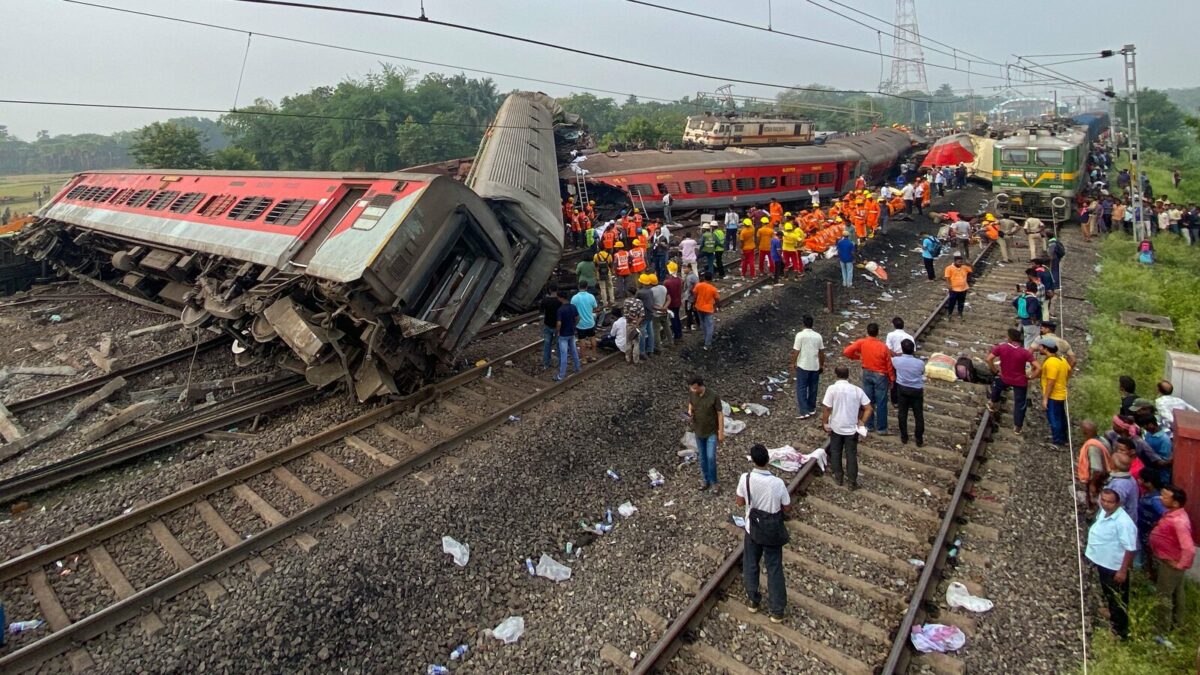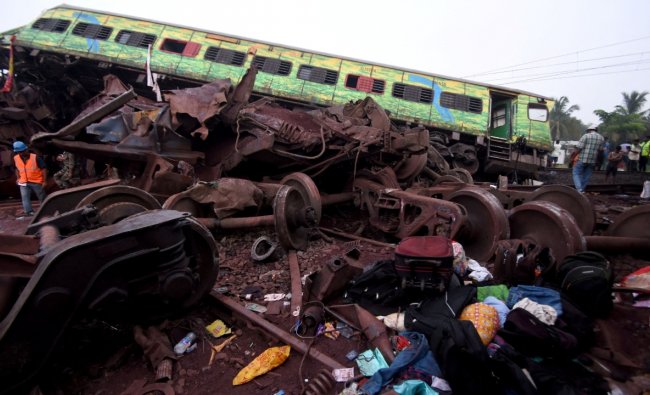Harshika Chowdary
04-06-2023
The tragic triple train collision in Odisha’s Balasore, resulting in the loss of 288 lives and over 1,000 injuries, has raised concerns about the safety standards of Indian Railways. While Railway Minister Ashwini Vaishnav has promised to unveil a report revealing the root cause of the accident, critics have drawn attention to an audit report presented in Parliament last year. The Comptroller and Auditor General of India (CAG), the country’s top auditing body, conducted the report on derailments in Indian Railways and highlighted several critical deficiencies in rail safety measures.
According to the CAG report, one of the primary causes of the accident was a change in electronic interlocking. The Railway Board has also provided a detailed account of the sequence of events leading up to the crash. The CAG report delved into whether the rail ministry had clearly laid down and implemented measures to prevent derailments and collisions. It exposed severe shortcomings in inspections, failure to submit or accept inquiry reports after accidents, underutilization of dedicated railway funds for priority tasks, declining funding for track renewal, and insufficient staffing in safety operations.

The report highlighted significant deficiencies in inspections by Track Recording Cars, which are essential for assessing the geometric and structural conditions of railway tracks. It revealed shortfalls ranging from 30-100% in these inspections. The Track Management System (TMS), a web-based application for monitoring track maintenance activities, also came under scrutiny. The report stated that the in-built monitoring mechanism of the TMS portal was not operational.
From April 2017 to March 2021, the ‘Engineering Department’ was responsible for 422 derailments. The report identified ‘maintenance of track’ as the leading cause of derailments (171 cases), followed by ‘deviation of track parameters beyond permissible limits’ (156 cases). ‘Bad driving/overspeeding’ was another major contributing factor. The ‘Operating Department’ accounted for 275 accidents, with ‘incorrect setting of points and other mistakes in shunting operations’ making up 84% of the cases. The report attributed most derailments to failures in five key areas, namely rules and joint procedure orders, training and counselling of staff, supervision of operations, coordination and communication between departments, and scheduled inspections.
The report also shed light on delays in submitting and accepting inquiry reports. In 63% of cases, inquiry reports were not submitted within the prescribed timeframe, and in 49% of cases, there was a delay in the acceptance of the reports by the authorities.
Furthermore, the CAG report highlighted a declining trend in the overall expenditure on priority tasks from the Rashtriya Rail Sanraksha Kosh (RRSK), a reserve fund established to finance safety-related works. The allocation of funds for track renewal declined, and the already allocated funds were not fully utilized. The report noted that the purpose of creating a separate dedicated fund for safety-related works was defeated as safety-related projects faced delays due to fund constraints.

The CAG report revealed a significant correlation between derailments and track renewals. Out of the 1,127 derailments that occurred from 2017 to 2021, 289 derailments (26%) were linked to track renewals. Additionally, out of the targeted 2,908 manned level crossings for elimination between 2018 and 2021, only 2,059 (70%) were eliminated.
Inadequate staffing in the safety category was another concern highlighted in the report. The CAG concluded that steps must be taken to ensure sufficient staff in the safety category to maintain the quality of maintenance activities.
To address these issues, the CAG recommended that the Railways strictly adhere to scheduled timelines for accident inquiries and their finalization. It also called for the development of a robust monitoring mechanism to ensure the timely implementation of maintenance activities. The report emphasized the adoption of fully mechanized methods of track maintenance and improved technologies.
The CAG report underscored the importance of establishing a fool proof system to learn from past mistakes and prevent the recurrence of derailments. Addressing these deficiencies is crucial for Indian Railways to fulfil its main objective of ensuring passenger safety and preventing such tragic incidents in the future.












